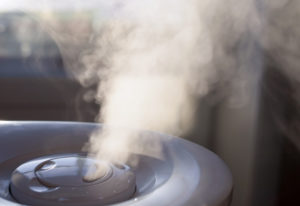Getting quality sleep is a key component of good health. It is particularly important to know how much to sleep when sick so that your body can recover. There is a strong correlation between recovery time from illness and the amount of sleep that you are able to get on a regular basis. Here are a few things to understand to help you to discern how much sleep is necessary when you are feeling under the weather.
Why Sleep is Crucial for Good Health
 Getting the right amount of sleep each night is paramount to overall good health. Sleep is how the body repairs and regenerates. Without quality sleep, the body’s immune system does not function at optimal levels. Those who enjoy good sleep each night may also see lower levels of inflammation in the body, reduced risk of weight gain, a decreased risk for heart disease and improved athletic performance.
Getting the right amount of sleep each night is paramount to overall good health. Sleep is how the body repairs and regenerates. Without quality sleep, the body’s immune system does not function at optimal levels. Those who enjoy good sleep each night may also see lower levels of inflammation in the body, reduced risk of weight gain, a decreased risk for heart disease and improved athletic performance.
Adequate rest is also essential for optimal mental health. The right amount of rest will improve your concentration and mental acuity, reduce levels of anxiety and depression and boost your mood.
Why Sleep is Vital When Sick
Time and time again, research has demonstrated that good sleep is crucial when you are battling an illness. Science has found that most health issues depend on adequate sleep to solve. One example is that numerous studies have shown that getting enough sleep after receiving a vaccine will increase the ability of the body to properly respond to it and process its effects.
Conversely, not getting enough sleep can further complicate existing health issues such as high blood pressure and the growth of cancerous tumors. Without enough sleep, the body may also see a worrisome increase in inflammation.
How Are Sleep and Immune Function Linked?
It is a proven fact that sleep and immunity are linked in a bidirectional way. This means that good sleep can boost immunity and not enough sleep can reduce the ability of the body to fight off viruses and other harmful triggers. In addition, not getting enough sleep can lower the immune system to a threshold that makes it more difficult for you to recover.
However, it is important to note that more sleep is not always more beneficial. If you get too much sleep, you may feel sluggish during the day or experience difficulty falling asleep later.
How Do You Know How Much to Sleep When Sick?
The amount of sleep to strive for when sick is highly dependent on the severity of the illness and the age of the individual. A good general rule to follow is to add at least one hour of sleep each night to your normal routine when you are sick. In addition, sneaking in a nap or two will also promote faster healing so that you can get back to your regular lifestyle more quickly.
Children under the age of five should get at least 13 hours of sleep. The amount of sleep necessary increases the younger the child is. Adults should try to get at least seven to nine hours of sleep to promote good health.
Tips for Getting Quality Sleep When Ill
It can be challenging enough to fall asleep and stay asleep even under the best conditions. This can be made even more difficult when your body is working hard to fight off illness. The specific symptoms associated with the illness can compound the issue even further.
Here are a few ways that you can get better sleep even when your body is battling an illness.
Create an Ideal Sleep Environment
While sleep may be more elusive when you are sick, there are steps that you can take to encourage better rest. Creating an environment that is the right temperature to make you comfortable is the first step. You also need to minimize light and noise distractions.
Deliver Moisture

Avoid Alcohol and Caffeine
Even under ideal conditions, alcohol and caffeine can interfere with your ability to get a good night’s sleep. It is especially important to avoid these two things when you are sick and in need of good sleep.
Over-the-Counter Medications
Many individuals find relief in over-the-counter medications that relieve symptoms so that you are able to fall asleep. Be sure to check the label to make sure that the medication does not contain stimulants so that you do not make the problem worse.
Elevate Your Head
Especially if you are suffering from a cold or another respiratory issue, elevating your head can help you to sleep more soundly. This works by helping to reduce postnasal drip and coughing that may disrupt your ability to sleep.
There is never a good time to be sick. However, knowing how you can get quality rest during this time and why it is important will help you to get back up on your feet more quickly so that you can resume your regular routine.







